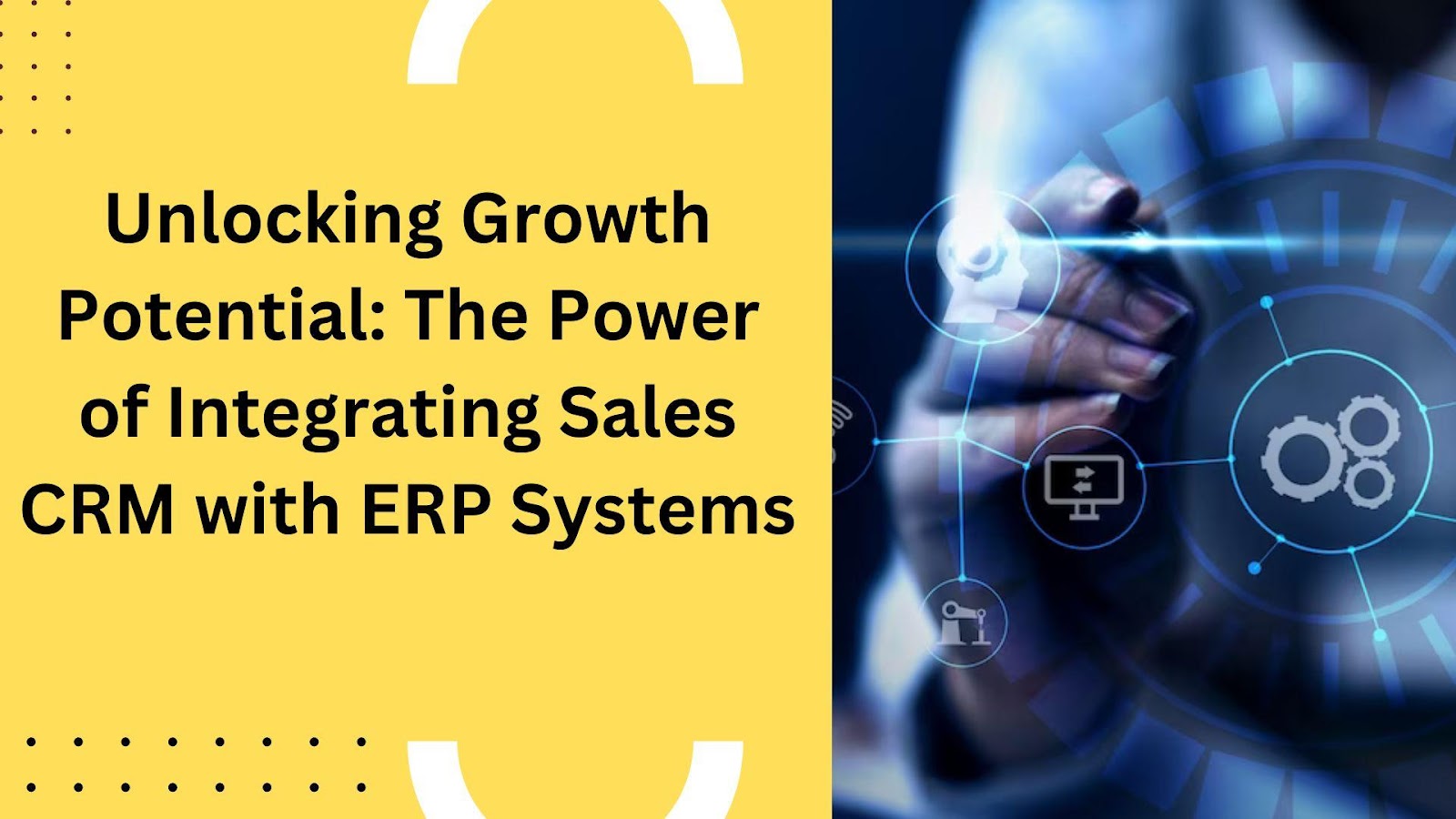Did you know that businesses that integrate Sales CRM with ERP systems can experience up to a 20% increase in sales efficiency? In today’s dynamic business landscape, companies are constantly seeking ways to enhance efficiency, streamline processes, and drive growth. Here’s where CRM-ERP integration steps in, acting as a powerful tool to streamline processes, break down data silos, and unlock your organization’s full growth potential.
Understanding the Powerhouse Duo: CRM & ERP
Before delving into the benefits of integration, let’s first clarify the roles of CRM and ERP systems:
- CRM Systems: CRM systems are designed to manage interactions with current and potential customers. They store customer data, track interactions, manage sales pipelines, and facilitate communication with clients. The primary goal of CRM is to improve customer relationships and drive sales.
- ERP Systems: On the other hand, ERP systems are comprehensive software platforms that integrate various business processes, including finance, human resources, inventory management, procurement, and more. ERP systems provide a centralized database for different departments to access and share information, enabling efficient resource planning and decision-making across the organization.
Why Integrate? The Synergy Effect
While CRM and ERP systems serve distinct purposes, they both contain valuable data that, when combined, can provide a holistic view of the business and drive strategic decision-making.
Here are some key reasons why integrating Sales CRM with ERP systems is essential for unlocking growth potential:
- Seamless Data Flow: Integration enables seamless data flow between CRM and ERP systems, eliminating silos and ensuring that all relevant information is accessible across departments. This unified data environment allows for better collaboration, improved visibility, and more informed decision-making.
- Improved Sales Efficiency: By integrating CRM with ERP systems, sales teams can access real-time inventory data, pricing information, and customer history directly from the CRM interface. This empowers sales representatives to provide accurate quotes, manage orders efficiently, and deliver superior customer service, ultimately driving sales growth.
- Enhanced Customer Experience: A comprehensive view of customer data enables organizations to better understand customer needs, preferences, and buying behaviors. By leveraging integrated CRM and ERP data, companies can personalize marketing campaigns, anticipate customer demands, and deliver tailored products and services, leading to enhanced customer satisfaction and loyalty.
- Streamlined Processes: Integration eliminates the need for manual data entry and reduces the risk of errors associated with duplicate data. This streamlines processes, improves data accuracy, and frees up valuable time for employees to focus on more strategic activities, such as nurturing customer relationships and driving innovation.
- Data-driven Insights: Integrated CRM and ERP systems provide access to rich analytics and reporting capabilities, enabling organizations to gain actionable insights into sales performance, inventory levels, market trends, and customer behavior. These insights empower leaders to make data-driven decisions, identify growth opportunities, and optimize business processes for maximum efficiency and profitability.
Taking Action: A Smooth Integration Journey
While the benefits of integrating Sales CRM with ERP systems are clear, successful implementation requires careful planning and execution. Here are some best practices to ensure a smooth integration process:
- Define Objectives: Clearly define your integration objectives and identify key stakeholders to ensure alignment across the organization.
- Choose the Right Integration Platform: Select a robust integration platform that supports seamless data synchronization between CRM and ERP systems and offers scalability to accommodate future growth.
- Standardize Data: Establish data governance policies and standardize data formats across systems to ensure consistency and accuracy.
- Provide Training and Support: Invest in comprehensive training programs to educate employees on the benefits of integration and provide ongoing support to address any challenges that arise.
- Monitor Performance: Continuously monitor integration performance and solicit feedback from users to identify areas for improvement and optimization.
The Future is Integrated
In an increasingly competitive business environment, integrating Sales CRM with ERP systems is no longer a luxury but a necessity for organizations looking to unlock their full growth potential. By breaking down silos, streamlining processes, and harnessing the power of unified data, companies can achieve:
- Enhanced sales efficiency
- Improved customer experience
- Sustainable growth
Embracing integration is not just about adopting new technology—it’s about transforming the way businesses operate and positioning themselves for success in the future.
